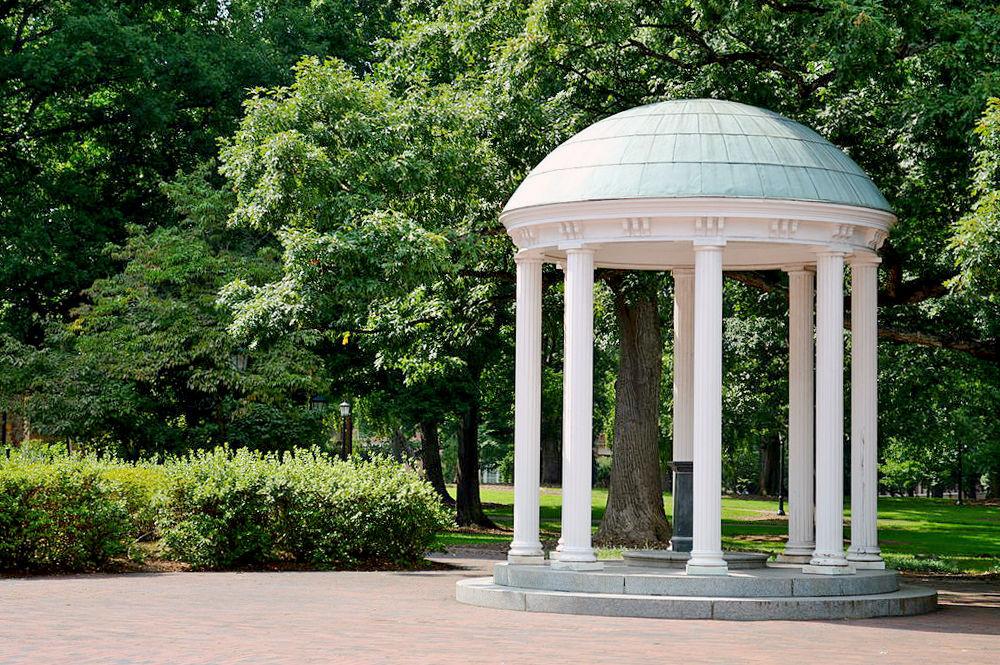The North Carolina Court of Appeals has ruled to allow the public access to the names of those found responsible for sexual assault at UNC-Chapel Hill, causing controversy between other universities in the UNC System, those concerned about survivors of sexual assault and media outlets looking to access this information.
The ruling from the NC Court of Appeals established that UNC-CH now has to provide names of those affiliated with the university who are convicted of sexual assault. The Daily Tar Heel, WRAL, The Charlotte Observer and The Durham Herald-Sun sued the university in 2016 after they declined to provide information about those accused of rape and sexual assault.
Sheri Schwab, the interim vice provost from the NC State Office of Institutional Equity and Diversity, said that this ruling would make it easier for people at universities in the UNC System to request information.
“The ruling is at the state level,” Schwab said. “It isn’t university specific, they are basically saying for all universities that we would have to comply by the same requirement of disclosing so I guess, based on this ruling, people could make information requests for us to disclose parties in the case.”
Because OIED handles sexual assault cases on NC State’s campus, Schwab said that if the ruling does not get appealed, the office would need to inform survivors that their case is available to the public. Survivors have the option to disclose their name or keep it anonymous.
“We’re already providing the steps of the process for the person who is coming forward,” Schwab said. “I think that this would be, if it holds, something we would have to say. It’s also your right to know that should this proceed and come to an outcome, that it could be part of a freedom of information act request, so I think we would do that early in the process.”
Some concerns have arisen since the NC Court of Appeals announced their decision mid-April. Janine Kossen, associate director of the NC State Women’s Center, is not only concerned about this ruling deterring survivors from coming forward, but also said that having this information available to the public may out survivors, even if they withhold their name.
“A potential that we need to be aware of is even if someone doesn’t consent to have their name out there, there are pieces of the puzzle that people can put together and figure things out even without that public disclosure by a survivor,” Kossen said. “We want to ensure that we’re putting in place all the systems and resources to avoid re-trauma of survivors.”
Kossen also said that people should be aware of the balance between what the public should know and a survivor’s privacy.
“I think it’s one we have to be careful of, the need to balance the public interest in information and accountability and access and safety needs to be balanced with a student’s privacy and their health and their well-being,” Kossen said. “I think there is an interest from the public to have as much information as possible, but in some cases that can do more harm than good and this could potentially be one of those cases.”
Rachel Jones, a third-year studying journalism at UNC-CH and editor-in-chief elect of The Daily Tar Heel, said that this ruling is an accomplishment for not only media outlets, but student media outlets.
“It’s just a really big victory for the freedom of information in this state,” Jones said. “It shows that we’re not intimidated by the university and that we are still willing to fight for records even in the midst of what is a turbulent time for us, for college media and for media in general.
According to Jones, The Daily Tar Heel will need to take precautions going forward with articles involving these information requests.
“Something that is a big concern in the community and a big concern in our newsroom as well is, again, just keeping that coverage respectful towards victims and figuring out ways to thoughtfully report on this that won’t negatively impact victims’ lives,” Jones said. “We’re trying to be as sensitive as possible to the fact that these records may unlock trauma for some people. They may lead to people’s identities if we’re not careful with it.”
To access this information, individuals associated with media outlets, like The Daily Tar Heel, will need to put in information requests with the university. In NC State’s case, this is handled by the General Counsel office.
“We do have an entire office of people in General Counsel that handle all information requests,” Schwab said. “Which I think is a huge benefit because they can talk to the person who’s requesting the information and give what the requesting party is asking for but no more than what the requesting party is asking for as well as ensure there is a legal review to make sure that someone doesn’t give the name of a survivor when it wasn’t supposed to be. “
Although the ruling is currently in effect, it is unconfirmed whether or not UNC-CH will challenge the verdict or not.
“We’re not sure if UNC is going to challenge the decision yet,” Jones said. “There’s a chance that they might, there’s a good chance that they also won’t. I’m really looking forward of our coverage of it and what we can do with this information to better inform our public.”








